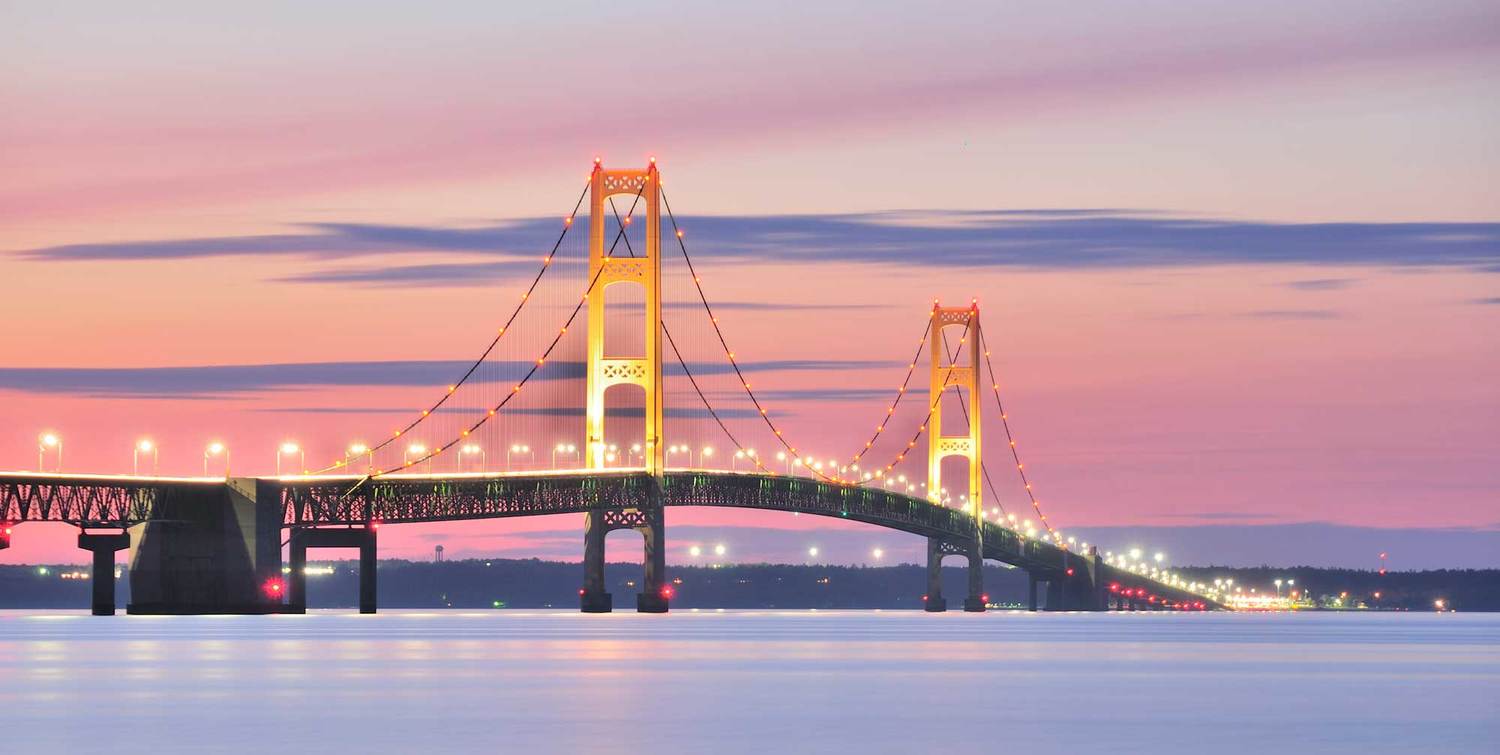
The meek response by Michigan’s top leaders to clear violations of Enbridge Energy Partners’ easement agreement with the state deepens concerns about a lack of leadership in protecting the Straits of Mackinac from a catastrophic oil spill, Great Lakes advocates said today in a letter to the state.
On April 27, the Oil & Water Don’t Mix campaign received a response from Michigan Attorney General Bill Schuette and the Snyder administration to the campaign’s April 13 letter, documenting at least eight known violations of Enbridge Energy Partners’ lease agreement with the state for operating pipelines in the Straits of Mackinac. Enbridge’s ongoing violations related to pipeline design threaten the very safety and health of the Great Lakes, and thus trigger the state’s duty to enforce its agreement with Enbridge.
The state’s letter points to the Michigan Pipeline Safety Advisory Board process to evaluate risks and alternatives to Line 5 in the Straits as proof that state officials are taking action to protect the Great Lakes from an oil spill. This evaluation process, however, will not be complete until the summer of 2017 at the earliest.
“We are deeply disappointed that Michigan Attorney General Schuette, Michigan Department of Environmental Quality Director Keith Creagh and Michigan Department of Natural Resources Director William Moritz failed to address the urgent issues we raised in our letter,” said environmental attorney Liz Kirkwood, Executive Director of FLOW (For Love of Water) in Traverse City. “Instead, they simply cited what is amounting to a two-year process with little certainty of producing an outcome that will protect our Great Lakes. That is not acceptable to us and our communities and businesses that love and rely on the Great Lakes.”
In the Oil & Water Don’t Mix campaign’s April 13 letter, twenty-two partner groups and Patagonia, Inc., called on the state to terminate its easement with Enbridge because the risk to the Great Lakes is too great and no remedy exists for some of the eight specific violations of the easement and state law, which include:
· Concealing information about cracks, dents, and corrosion with continued, sweeping assertions and misrepresentations that the Straits pipelines are in “excellent condition, almost as new as when they were built and installed” and have “no observed corrosion.” Of the nine rust spots on the on-shore portion of the eastern Straits pipeline, corrosion has eaten away 26 percent of the pipeline’s wall thickness in a 7-inch-long area, according to newly released company data.
· Failing to meet the pipeline wall thickness requirement due to corrosion and manufacturing defects. Newly released Enbridge data reveals that manufacturing defects in the 1950s resulted in pipeline wall thickness of less than half an inch in perhaps hundreds of sections and up to 41 percent less thick than mandated on the west Straits pipeline. Enbridge, meanwhile, continues to boast falsely about its “nearly one-inch-thick walls of Line 5’s steel pipe travelling under the Straits.”
· Failing to meet the “reasonably prudent person” provision by claiming that its steel pipelines lying underwater just west of the Mackinac Bridge since 1953 can last forever and do not require a plan for eventual decommissioning. The 63-year-old pipelines were built to last 50 years.
· Failing to demonstrate adequate liability insurance, maintain required coating and wood-slat covering to prevent rust and abrasion, and adequately support the pipeline, resulting in stressed and deformed segments.
· Failing to adhere to federal emergency spill response and state environmental protection laws, including Act 10 of P.A. 1953, the Great Lakes Submerged Lands Act (“GLSLA”), the Michigan Environmental Protection Act (“MEPA”), and public trust law.
“The state is not acting with any sense of urgency despite the clear and present danger these pipelines pose to the Great Lakes and shoreline communities,” said James Clift, Policy Director of the Michigan Environmental Council. “If the state truly takes their responsibility as seriously as they say to protect the public trust resources of the Great Lakes—the crown jewels of Michigan’s environment and economy—state officials will enforce the violations of the 1953 legal agreement with Enbridge.”
“The culture of denial and delay continues to prevail among Michigan’s top leadership, unfairly placing the risk on the public and our communities,” said David Holtz, Executive Committee Chair of the Sierra Club Michigan Chapter. “It’s time to prioritize our public waters over powerful private interests.”
To date, more than 30 cities, villages, townships, and counties, and tribal governments, across Michigan have voted to call on the governor and attorney general to stop the oil flowing through the Straits, including Mackinac Island, Mackinaw City, and the cities of Cheboygan, Petoskey, Charlevoix, and Traverse City. Dramatic new research from the University of Michigan released in late March shows an Enbridge oil pipeline rupture in the Mackinac Straits could impact more than 700 miles of Lake Michigan and Lake Huron coastlines, as well as more than 15 percent of Lake Michigan’s open water and nearly 60 percent of Lake Huron’s open water.
The state of Michigan’s April 27 letter is available here and the Oil & Water Don’t Mix campaign’s April 13 letter here.
Claire Wood
Program Coordinator / FLOW (For Love Of Water)
